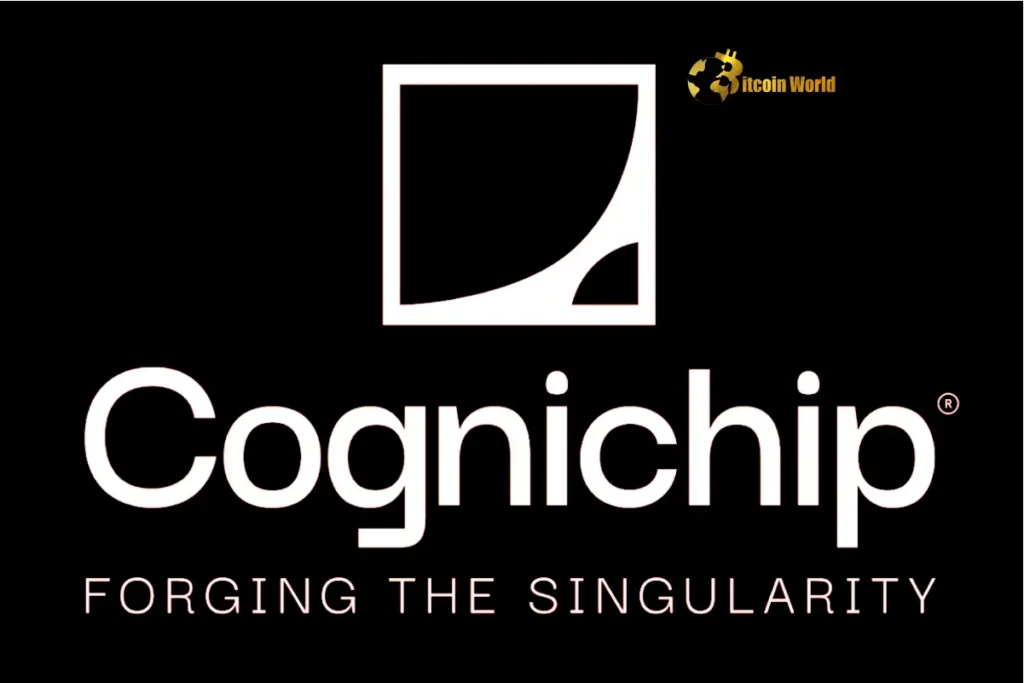Generative AI Accelerates Chip Development: Cognichip Emerges with $33M to Revolutionize Semiconductor Industry

[ad_1]
![]()
![]()
BitcoinWorld
![]()
Generative AI Accelerates Chip Development: Cognichip Emerges with $33M to Revolutionize Semiconductor Industry
In the rapidly evolving landscape of artificial intelligence and technology that underpins many aspects of the digital world, including cryptocurrencies and blockchain infrastructure, the speed of innovation is paramount. While new AI models and software products emerge at a breakneck pace, the fundamental hardware they run on – computer chips – often lags behind in development cycles. This bottleneck in the semiconductor industry is a significant challenge, and a new player, Cognichip, is stepping out of stealth mode with an ambitious plan to tackle it head-on using generative AI.
Can Generative AI Speed Up Chip Development?
San Francisco-based Cognichip aims to create a physics-informed foundational artificial intelligence model designed specifically to assist semiconductor companies. They call this approach “artificial chip intelligence.” The goal is to significantly speed up the complex and lengthy process of chip development. The company believes this AI-driven method could potentially cut production times by 50% and reduce associated costs, a major potential leap for the industry.
The vision comes from Faraj Aalaei, a veteran of the semiconductor industry with experience at companies like Fujitsu Network Communications and Centillium Communications. Aalaei’s concern about the industry’s future dates back to 2015, when he observed a stark decline in venture capital investment into semiconductor companies. He felt the industry needed a fundamental change to maintain competitiveness and foster innovation.
Why is Speeding Up AI Chip Development Crucial?
Aalaei noted that the slow pace of bringing new chips to market likely contributed to the lack of investor interest. He held onto his concerns for nearly a decade, founding Candou Ventures in 2016. Through his venture work, he witnessed the explosive growth and advancements in AI. It was the progress in generative AI that convinced him the time was right to launch Cognichip in 2024, seeing the technology as a potential solution to the semiconductor industry’s long-standing challenges.
Cognichip has quietly assembled a team of artificial intelligence experts from leading institutions like Stanford, Google, and MIT to build their foundational model. While Aalaei estimates it will take several years to achieve the model’s “ultimate performance,” he believes it can provide value to companies even before reaching that peak. The ultimate vision is for this “artificial chip intelligence” to function like an expert engineer, enabling companies to achieve the same results with fewer resources and in much less time.
Cognichip’s Funding and Industry Impact
Emerging from stealth, Cognichip announced a significant $33 million seed funding round. This round was co-led by prominent venture firms Lux Capital and Mayfield, with participation from FPV and Aalaei’s own Candou Ventures. Navin Chaddha, a managing partner at Mayfield, expressed confidence in Cognichip’s potential, calling their solution a “pain killer” for a critical bottleneck in the massive, trillion-dollar semiconductor industry. He highlighted the current reliance on human labor in chip design and the potential for AI to fill talent gaps and address major pain points.
Beyond just speed and cost reduction, Aalaei hopes Cognichip’s technology can help democratize access to chip development. Easier access could enable more semiconductor startups to emerge and attract investment. It could also allow smaller companies to design specialized AI chips tailored for specific, niche applications or smaller AI models, fostering greater diversity and innovation in the hardware landscape.
Aalaei emphasizes that Cognichip is not pursuing incremental improvements or building standard electronic design automation (EDA) tools. Instead, they aim to set a new standard for the industry, driving fundamental change through their novel generative AI approach to chip development.
Cognichip’s emergence with substantial backing signals growing confidence in the potential of artificial intelligence, particularly generative AI, to transform even the most complex and hardware-intensive industries. Their success could significantly impact the speed at which new technologies, including advanced AI chips crucial for future innovations, come to market, potentially benefiting a wide range of fields dependent on cutting-edge hardware.
To learn more about the latest generative AI trends, explore our article on key developments shaping AI features.
This post Generative AI Accelerates Chip Development: Cognichip Emerges with $33M to Revolutionize Semiconductor Industry first appeared on BitcoinWorld and is written by Editorial Team
[ad_2]
Source link









